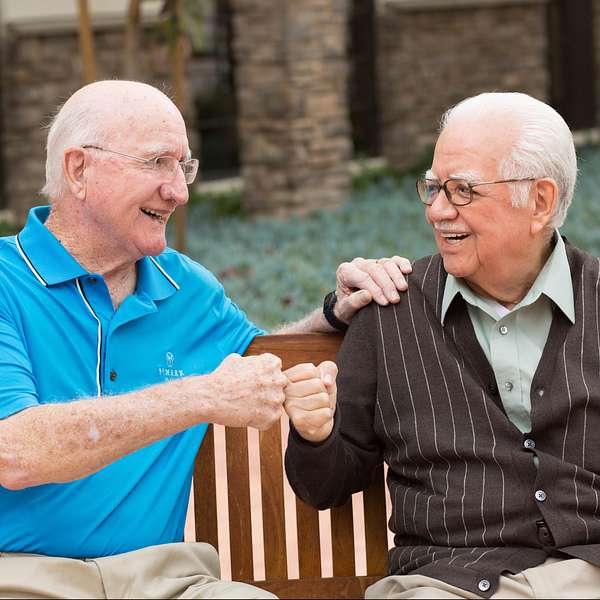
Senior Care and Nursing Homes Tomorrow
Senior Care and Nursing Homes Tomorrow
St. Paul's PACE Program of All-Inclusive Care for the Elderly in San Diego California
Once in a while you have one of these serendipitous moments where you learn something that's completely different than what you thought you knew. And that is the Genesis for this conversation. I am talking to Cheryl Wilson, who is in charge of the St. Paul's PACE program out of the San Diego area, correct? Yes. So let's start with actually Boone. What St. Paul's is. Well, thank you. Yes, I'm sure. Wilson. I'm the CEO of St. Paul's senior services and St. Paul's PACE. One of our entities that comes under the umbrella of senior services. We've been around for 60 years in San Diego.
We do everything from residential living to assisted living services, memory care living, skilled nursing, senior day care, child care in San Diego infants through six years, memory care. Assisted living and PACE Program. Of course. And that's what we will, I wanted to talk to you about today. Terrific. And so let's start with actually an overview of what is PACE.
I think that probably most people who are watching, listening, reading have at least heard of PACE, but maybe don't really know what it does, what it's designed to do and that kind of thing. So let's start with that. Yeah, peace is an acronym which stands for Program of all-inclusive care for the elderly, and it is truly all inclusive.
So we take a person who is very frail, financially, very poor, and has probably on average across the nation and the PACE programs anywhere from 11 to 15. Co-morbidities. And chronic diseases on average 16 different medications per day. And so they are very frail and on the edge all the time. And so it's a challenge to take care of these folks, because if the arthritis doesn't get you, then the heart disease will, or the high blood pressure will, or the Freitas from the kidney failure because of the diabetes or it's a multi case scenario.
But what happens with PACE? And what I found, I am a nurse. And what I've found is that the medical care is about 40% of taking care of these people. The other 60% is the social component of health care. And that includes housing. That includes housekeeping. That includes putting grab rails in the bathroom.
If the person needs it. That includes putting a ramp on the front door. If they live in a mobile home and they can't in their wheelchair van and they can't get in or out, we take care of whatever they need. Transportation meals, housekeeping, in home care, to come into the home nurses to come in and give insulin injections every morning, coming in five days a week to get physical therapy with no caps, it can be 52 weeks a year.
They get physical therapy every day. And that keeps them able to live at home, able to get in and out of the bed in the middle of the night to go to the bathroom, we provide them with DME also like a commode chair or walkers, electronic wheelchairs, whatever i